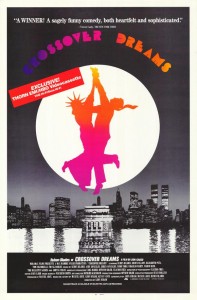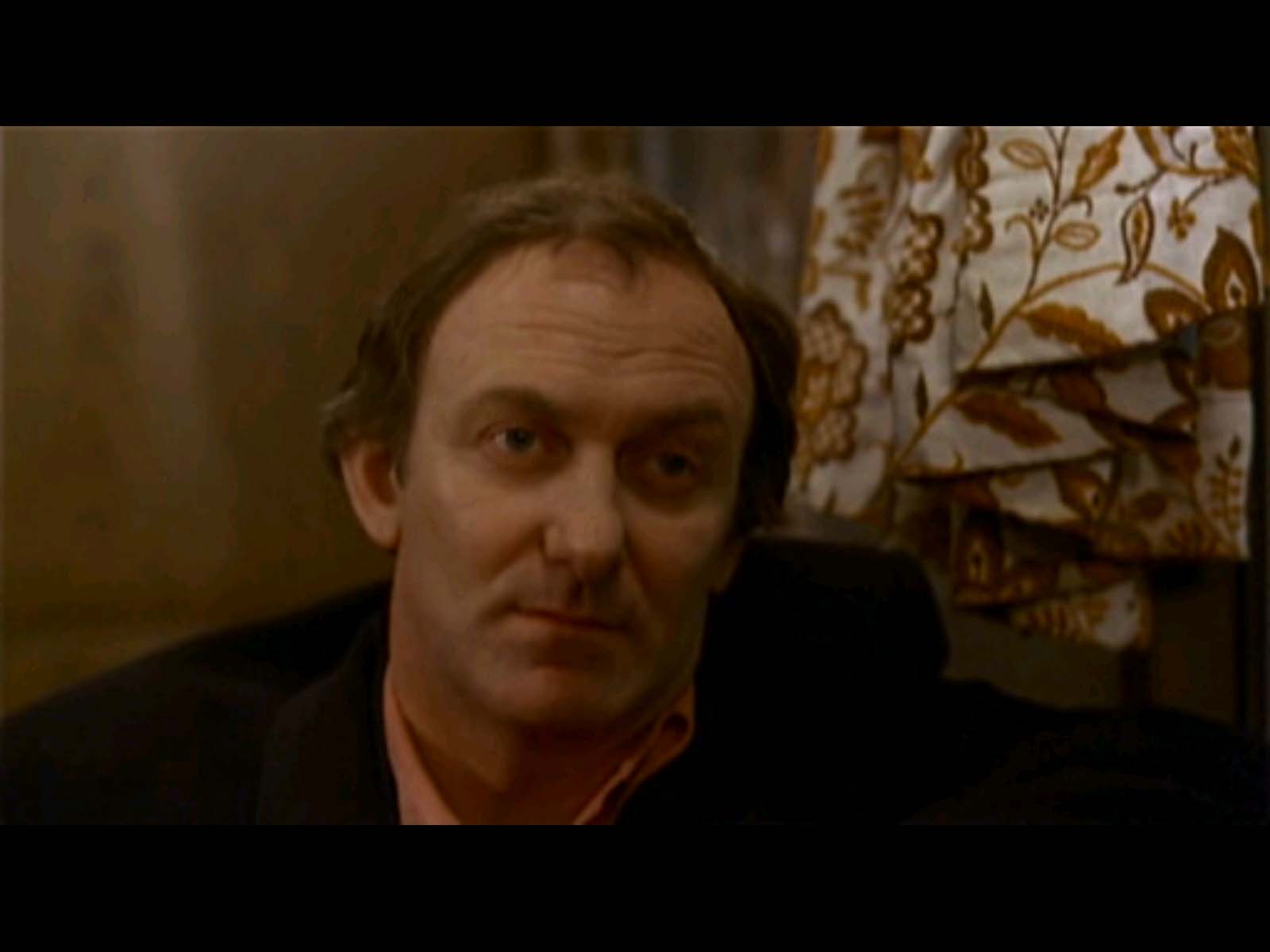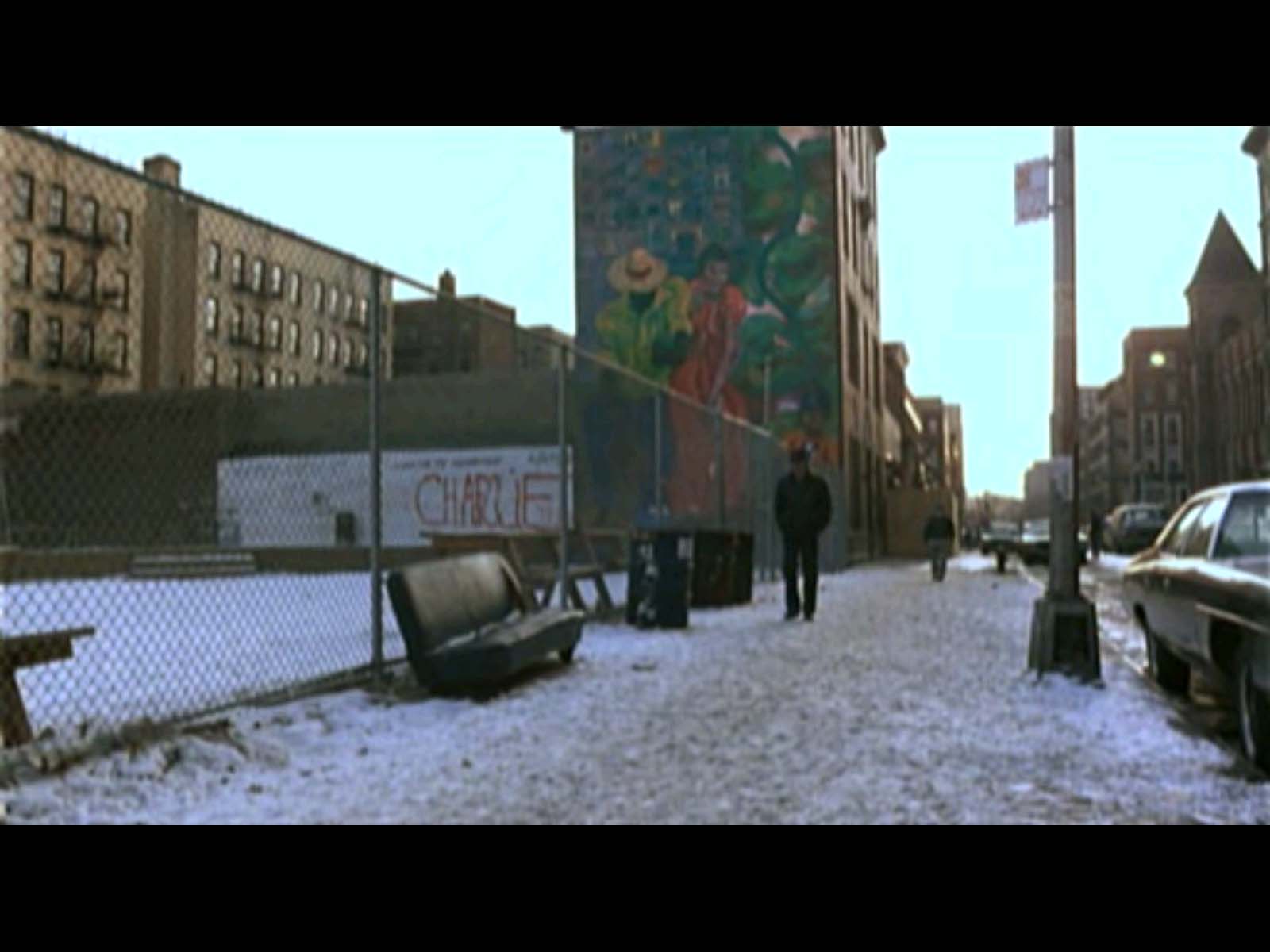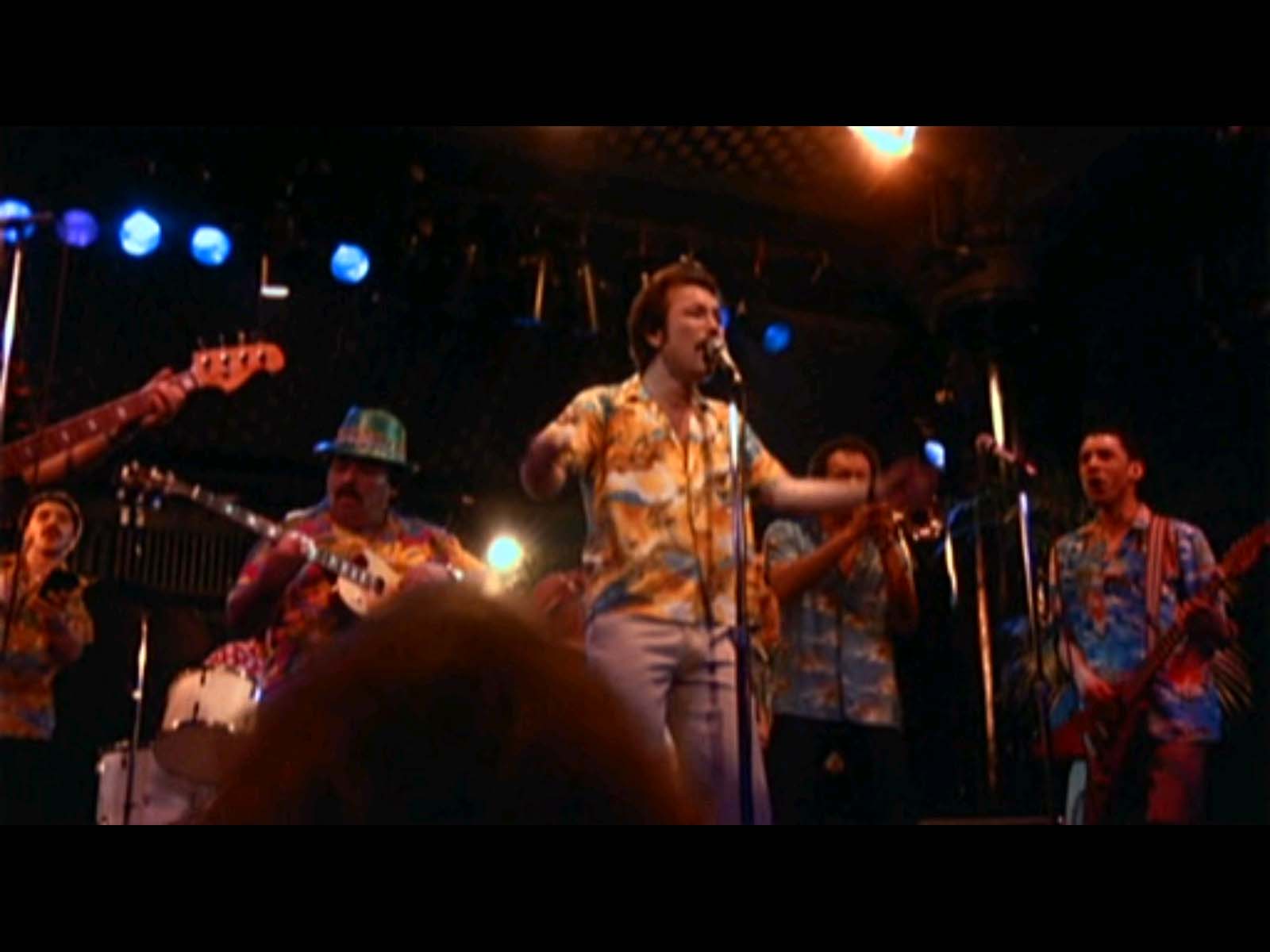“I wanna get outta here… I’m gonna get outta here!”
|

Synopsis:
An aspiring salsa musician (Ruben Blades) in New York’s Spanish Harlem “crosses over” into mainstream music, only to find that he’s unwisely left behind everyone most important to him — including his loving girlfriend (Elizabeth Pena) and longtime musical partner (Shawn Elliott).
|
|
Genres, Themes, Actors, and Directors:
- Latinos
- Musicians
- New York City
- Rise-and-Fall
Response to Peary’s Review:
Peary’s review of director Leon Ichaso’s second indie film (his debut was 1979’s El Super) is spot-on: he notes that it “starts out nicely”, offering “original, quirky characters” and plenty of “wit and spirit”, but soon “turns into an unconvincing morality play full of situations and characters we’ve seen in countless other pictures”. Although real-life Panamanian singer Blades is an impressive, believable actor with estimable musical skills, we quickly lose our sympathy for him — and by the second half of the film, he’s no longer even performing on-screen. With that said, there are enough positive elements in Crossover Dreams to make it worth a look at least once, including good use of Spanish Harlem locales, a pulsating salsa soundtrack, and fine supporting performances; it’s too bad the cliched screenplay fails to offer these characters the type of nuanced story they deserve.
Redeeming Qualities and Moments:
- Ruben Blades as Rudy Veloz

- Tom Signorelli in a bit part as a music agent/drug dealer

- Effective use of authentic Spanish Harlem locales

- A fabulous salsa soundtrack

Must See?
No, but it’s recommended for one-time viewing.
Links:
|
One thought on “Crossover Dreams (1985)”
First viewing. Not a must – but not a waste of time. Interesting and enjoyable enough.
Something of an antidote to ‘Taxi Driver’ (which I just posted on), ‘CD’ at least shows that NYC has a livelier, somewhat happy side in which people are out dancing and enjoying the best of what urban life has to offer; that which uplifts and inspires creativity.
Still, the two films share a dark reality – and ‘CD’ unveils the underbelly of the music business, as it whimsically embraces or discards (esp. more peripheral) artists, causes rivalry between friends, and can change the character and personality of someone tempted by fame’s trappings but unable to keep them in perspective.
I don’t have a problem with the second half of the film – in some ways, I find it more interesting as it goes. (The editing in the second half is particularly impressive since time occasionally jumps ahead oddly, yet we know we are always getting just the information we need.) I find the behavior and attitudes in the various situations rather realistic and believable. Two in particular:
– Blades’ character’s betrayal when he fires his good friend from a studio session.
– the discovery that Blades’ ex-gf (now married) was just as ambitious as he was; or, she apparently has decided it’s foolish to marry for love and doesn’t care that her now-husband (a white guy AND a dentist) is an “imbecile” (as Blades calls him, and he’s right), as long as she’s financially secure.